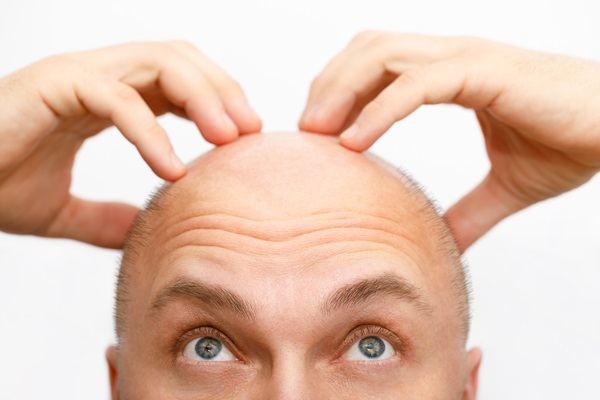Laser Hair Restoration: How it Works

Laser hair restoration is a safe, minimally invasive procedure that can help promote hair growth by irradiating photons into bald spots. The photons are taken in by weak cells and encourage hair growth. Also known as cold therapy and red light therapy, the procedure is less invasive than traditional hair restoration techniques.
Everything you need to know about laser hair restoration
Laser hair restoration uses low doses of laser energy to invigorate blood circulation in the scalp and encourage the growth of new hair follicles. A 2014 study performed by the National Institute of Health showed that laser hair restoration can be an effective way to treat women and men with hair loss. Another study showed that it can increase hair growth over 16 weeks by as much as 39 percent.
Some of the reasons why a growing number of patients choose laser hair restoration over other alternatives include:
- It is a virtually painless procedure
- It is less invasive than conventional hair restoration techniques
- There are no significant side effects
- The procedure increases the strength of hair follicles
Some of the negatives of laser hair restoration techniques include being more time-consuming than alternative treatments, being more expensive, and not being as effective as traditional hair loss techniques for patients dealing with advanced hair loss. Laser hair treatments can also interfere with some medications, particularly medications that increase a person’s sensitivity to light.
The procedure
Laser hair treatment can be used to address several different types of hair loss. The concept of using lasers to treat hair loss first showed up in the 1960s. A physician named Endre Mester noticed that exposing areas with hair loss to low-power laser light stimulated hair growth in mice.
While there is no clear explanation for why laser light promotes hair growth, some evidence indicates that laser therapy works by triggering a widening of blood vessels in the scalp, improving blood flow to specific areas of a patient’s skin, like their hair follicles.
The widening of blood vessels in the scalp triggers hair to enter the growth phase of its cycle. It works similarly to how Minoxidil helps to promote hair growth by promoting blood flow to the scalp.
There are several types of laser devices used to treat hair loss, from the large laser hair growth machines used by hair doctors to smaller devices like laser hair combs, hats, and helmets designed for home use.
What to expect
Laser hair therapy is effective at treating weaker, thinner hair follicles. It has been shown to help hair grow healthier, thicker, and stronger. It can add significant volume to a person's existing hair. It works best for patients who are in the earlier stages of hair loss.
Laser hair restoration is not an effective way to treat existing baldness. It cannot cause hair growth in bald areas of the scalp since there are no existing hair follicles to stimulate. Laser hair therapy is only effective when patients still have active hair follicles on their heads. However, it can help to slow down more advanced hair loss cases.
Patients can expect to see results in as little as two months after starting treatment. Hair loss might restart if the treatment is interrupted.
Frequently asked questions about laser hair restoration
Thinking about addressing thinning hair with laser hair restoration procedures? Here are answers to some of the questions you might have:
1. When is the ideal time to start treatment?
Laser hair restoration treatments are typically more effective on areas that still have healthy hair and less effective on bald spots, so patients are advised to get treatment during the early stages of hair loss when possible.
Any plans you have for the immediate future also dictate when the ideal time is. For example, if you plan to attend a special event in six months, you probably want to schedule your appointment a few months ahead of the event so you can show off your hair restoration.
2. How many treatments will I need?
Most patients will need multiple treatments to reach their hair restoration goals. Factors like your hair density, hair type, and the size of the area being treated determine how many treatments you will need to get in total. The technician will work with you to find the best possible times for your treatment sessions without disrupting your schedule.
We can save your hair
Dealing with the early stages of hair loss? Laser therapy might be right for you. Call or visit our Schaumburg clinic to set up an appointment.
Request an appointment here: http://dillonhair.com or call Dillon Hair Restoration at (800) 518-9307 for an appointment in our Schaumburg office.
Check out what others are saying about our services on Yelp: Laser Hair Restoration in Schaumburg, IL.
Recent Posts
Hair loss can usher in mixed emotions and damper your self-esteem, whether or not you were expecting the day. Fortunately, hair plugs or grafts can provide patients with a full head of their natural hair. If thinning or balding is something you are experiencing right now, help is available at our Schaumburg office. First, review…
Hair thinning treatments are far more versatile than they get credit for. Our team works closely with each patient to determine the root cause of their thinning tresses and craft an effective treatment plan. Take a closer look at common causes of hair thinning and the various methods we can use to treat it.Many factors…
Hair loss can significantly impact people, affecting their self-confidence and interpersonal relationships. Fortunately, hair grafting, also known as hair transplantation, provides a viable option to restore the natural hairline. If you are still deciding whether to pursue a hair graft, here are three reasons to consider it.Unlike temporary solutions like wigs or hairpieces, a hair…
For those with wrinkled skin, Botox® injections can provide great relief. While it may be a natural sign of aging, the presence of wrinkles can be frustrating to some. Thanks to the scientific research and testing in the 1990s by several dermatologists, Botox® was approved in 2002 by the Food and Drug Administration for cosmetic…


